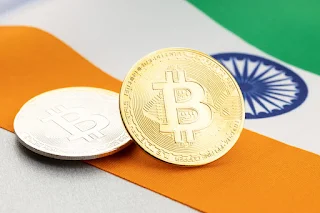🇮🇳 Bybit Enforces 18% GST on Indian Crypto Users — A Closer Look
Date: July 7, 2025
Platform: Bybit (Global Exchange headquartered in Dubai)
1. 🔍 The Announcement: What Just Happened?
On July 7, 2025, Bybit began enforcing an 18% Goods and Services Tax (GST) on Indian users—covering virtually all crypto-related services including:
-
Spot, margin, and derivatives trading
-
Staking services and rewards
-
Fiat-to-crypto purchases and withdrawals
-
Copy trading and bot strategies
-
Card payments and token swaps
(tradingview.com, coinpedia.org)
Bybit will automatically deduct GST on top of any transaction or service fees, and users can view the exact tax in their transaction history. This move aligns with India’s latest regulations requiring crypto platforms to collect GST on service charges.
(binance.com)
2. 🧮 The Financial Impact: More Than Just a Fee
Indian crypto users are no strangers to taxes. Already subject to:
-
30% capital gains tax on crypto profits
-
1% Tax Deducted at Source (TDS) on each transaction
…they now face an additional 18% GST, effectively forming a taxing trifecta.
(reddit.com, coinpedia.org)
Consider a ₹2,000 fee: with 18% GST, users pay ₹360 extra—taking the total tax to ₹2,360. Over time, this compounds dramatically.
(tradingview.com)
⚠️ What’s Being Affected?
Coinpedia’s July 7 breakdown lists taxed services as:
-
Spot & futures trading
-
Copy & bot trades
-
Staking rewards
-
Withdrawals & card purchases
-
Token swaps
-
Deposit services
…plus Bybit’s crypto loans, cards, and trading bots are being discontinued for Indian users starting July 9, 2025.
(tradingview.com, coinpedia.org, binance.com)
3. 💔 Community Backlash: “Insane” Reaction
The sentiment on Reddit is one of frustration and disbelief:
“30% tax on gains… and now on top of that, 18% Sales Tax on what looks like most activities. Insane.”
— uncapchad (reddit.com)
“These are absolutely ridiculous taxes.”
— KIG45 (reddit.com)
“Hats off to Indian community, you guys have a lot to put up with.”
— from the same thread (reddit.com)
4. 🏛️ Why Now? Regulatory Backdrop
-
GST law: India applies 18% GST on digital and financial services. Its extension to crypto is a recent enforcement.
(x.com) -
Bybit’s regulatory posture: The exchange paid a ₹9.27 crore fine in February 2025 under India’s Prevention of Money Laundering Act and registered with India’s Financial Intelligence Unit, binding it to comply with tax mandates.
(en.wikipedia.org)
As Sumit Gupta (CoinDCX) noted: “this was always the law. Exchanges must pay 18% GST…”
(x.com)
 |
5. 🎯 The Bigger Picture: Systemic Implications
a) Diminished Trading Activity
With every trade now taxed thrice, net returns shrink—likely reducing frequency and volume of trades.
(facebook.com)
b) Shift Toward DeFi and P2P
High taxes on centralized exchanges (CEXs) may push users towards:
-
Decentralized finance (DeFi) platforms
-
Peer-to-peer (P2P) services
Though these offer more privacy and potentially fewer transaction taxes, they carry added complexity and regulatory uncertainty.
(coinpedia.org)
c) Innovation at Risk
Industry experts warn that such a heavy tax burden might stifle India’s crypto ecosystem—pushing it into the shadows rather than fueling mainstream innovation.
d) Government Revenue
On the flip side, these tax measures enhance government revenue streams from crypto—GST, TDS, and profit taxes all add up to a potentially significant source of funds.
6. 💡 What Should Indian Crypto Users Do?
-
Review your portfolio strategy: Factor in the triple-layered tax impact before executing trades.
-
Compare platforms: Are all exchanges charging GST similarly? Check fees across platforms.
-
Explore DeFi/P2P with caution: While tax-efficient, they involve complexity and counterparty risk.
-
Track regulatory shifts: India’s crypto policy remains fluid—future relief or stricter rules could change the landscape.
7. 🔍 Final Take: A Turning Point
The implementation of an 18% GST, alongside existing taxes, places India among the world’s most heavily taxed crypto jurisdictions. This marks a turning point:
-
Traders face eroding profitability.
-
Exchanges risk losing market share to less taxable platforms.
-
Regulators win revenue but may drive innovation elsewhere.
Looking ahead, the crypto community must balance compliance with resilience—whether by advocating for reform or pivoting to platforms with better net outcomes.
8. 🗣️ Share Your Thoughts
-
Is India’s “crypto triple tax” overkill, or a necessary regulatory response?
-
Would this shift push you toward DeFi or alternate exchanges?
-
How should exchanges adapt to maintain user trust in high-tax environments?
Let’s discuss below 👇
Disclaimer: This post is for informational purposes only—not financial or legal advice. Always consult a qualified professional for personalized guidance.
➕ Further Reading & Citations
-
Coinpedia: Full breakdown of 18% GST on Bybit and what gets taxed (coinpedia.org)
-
TradingView (Coinpedia): Discontinuing loans, bots, and cards; July 7 GST start (tradingview.com)
-
Reddit thread: Community reactions in their own words
-
Bybit regulatory history (FIU fine, PMLA compliance) (en.wikipedia.org)


Comments
Post a Comment